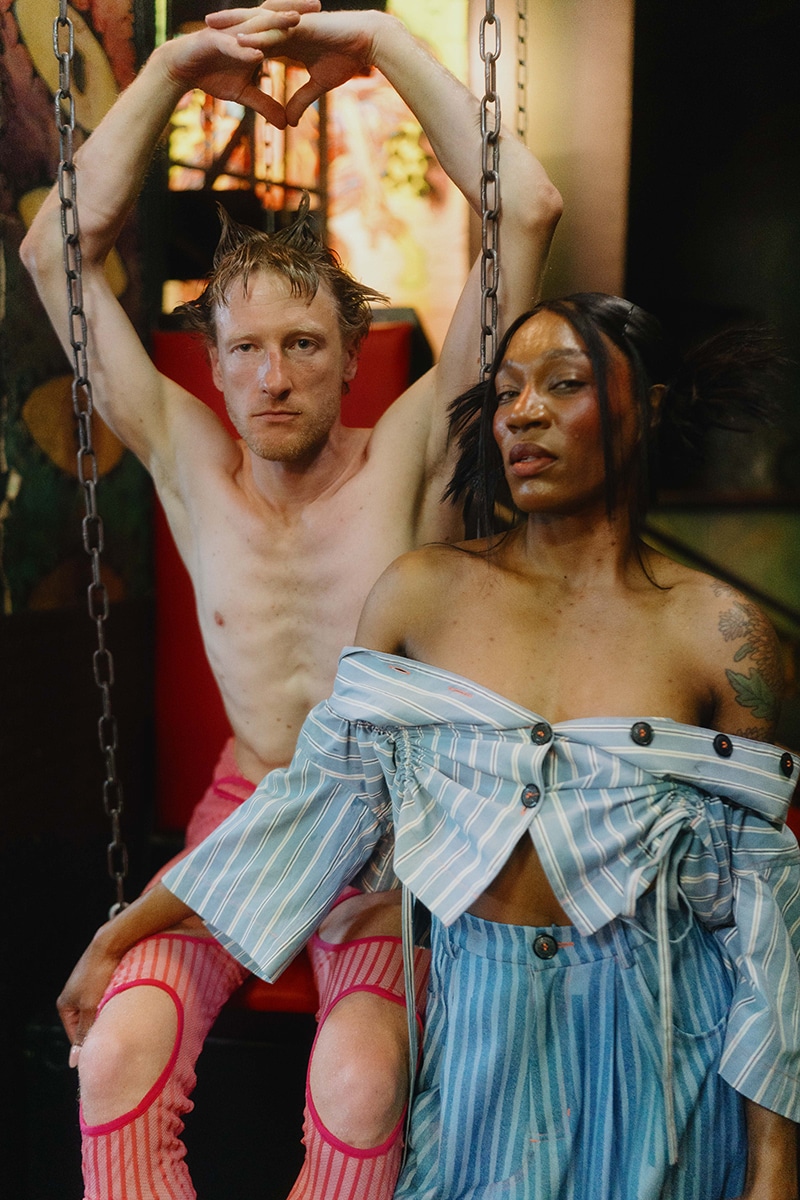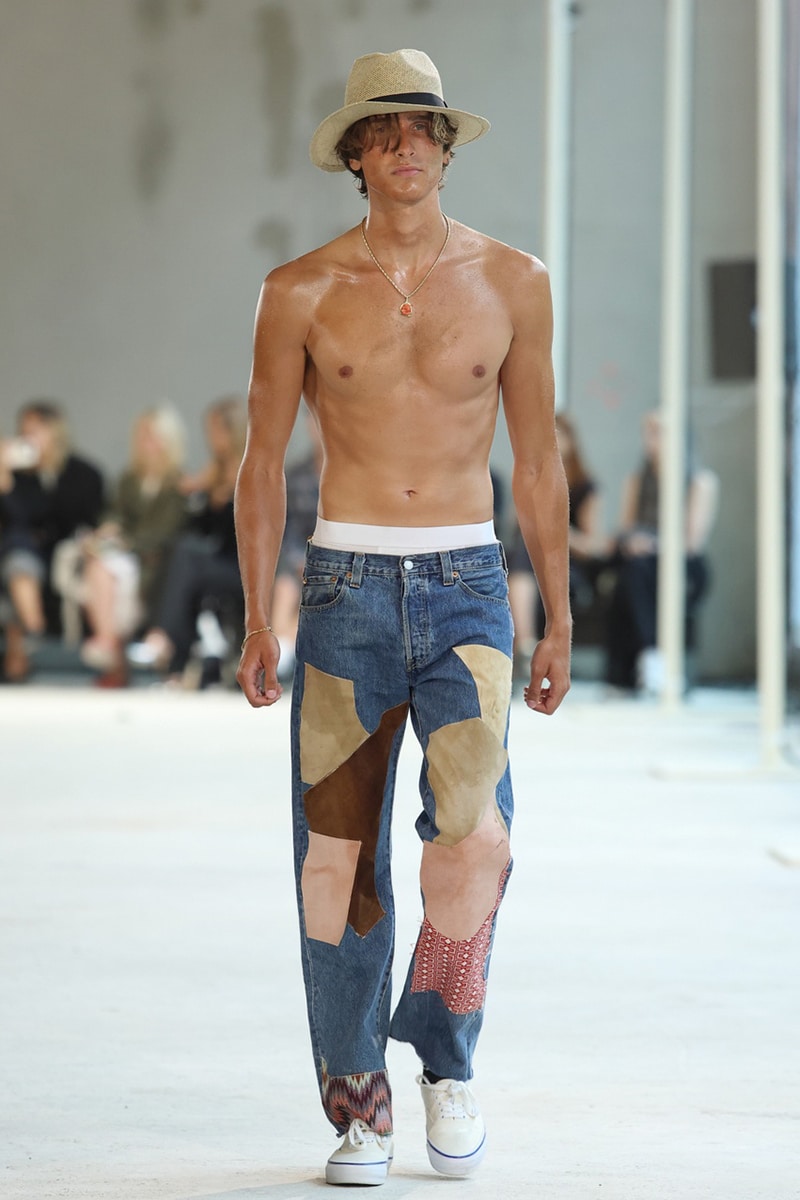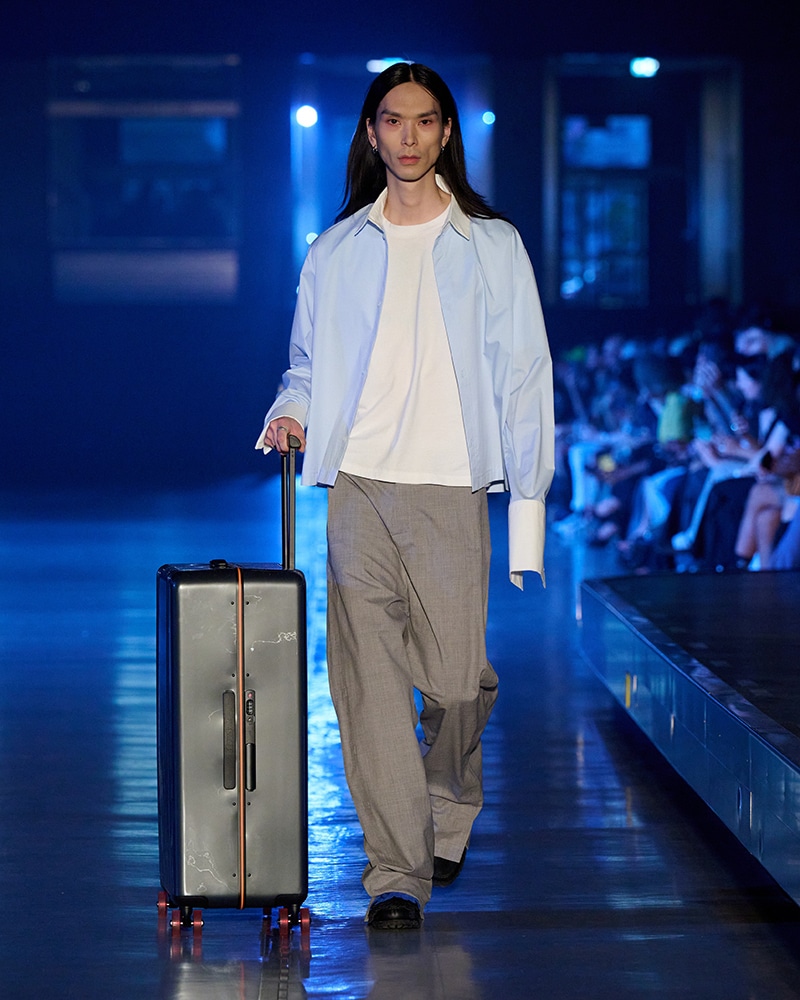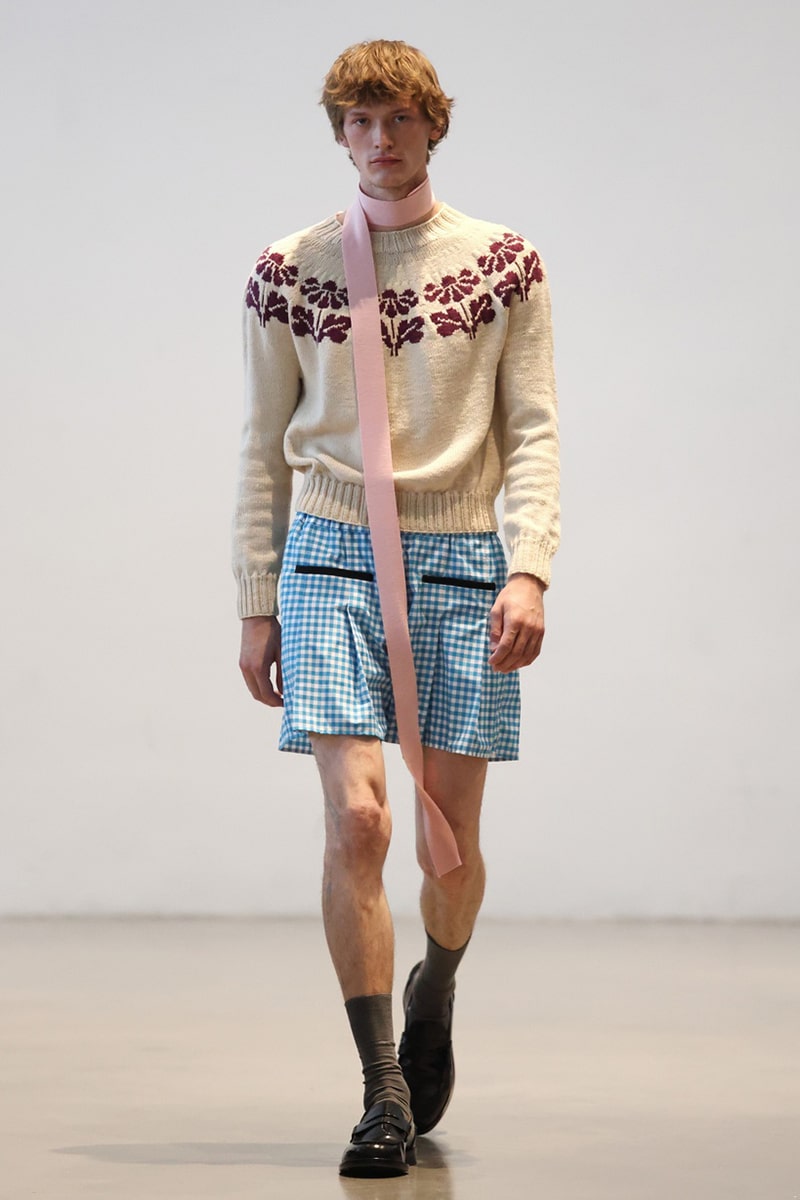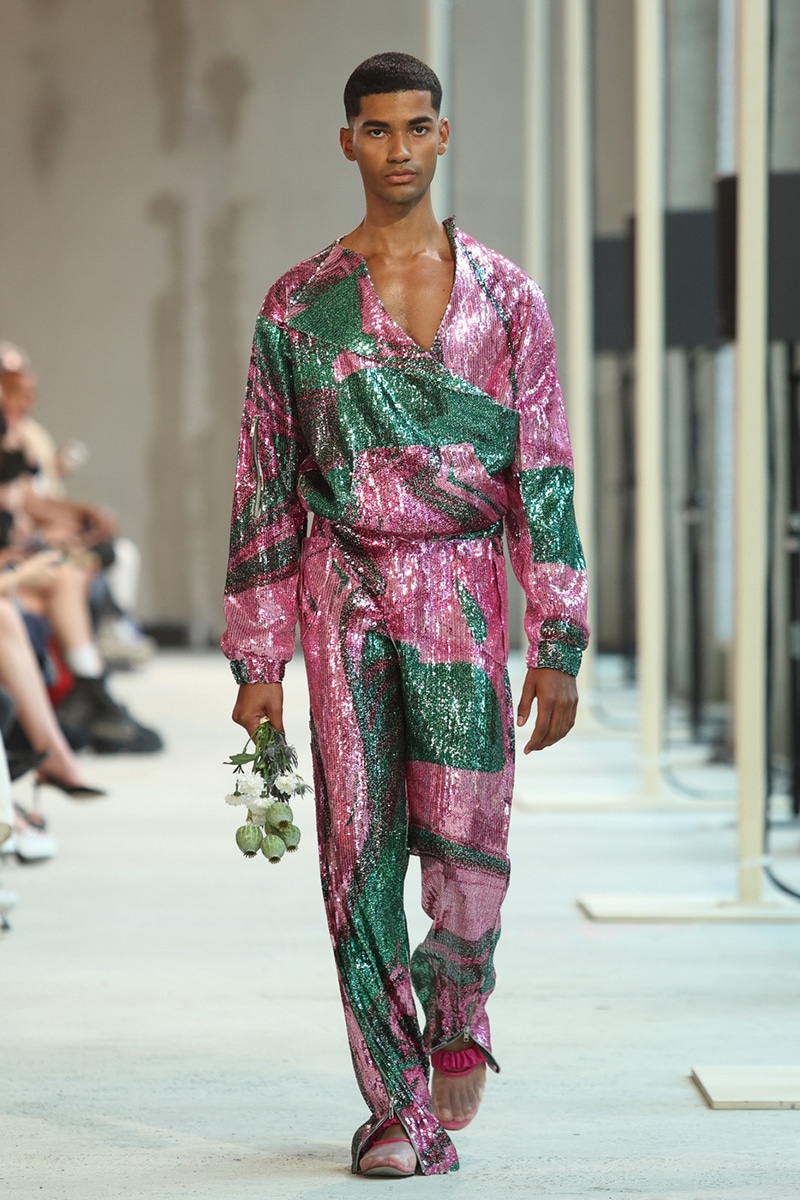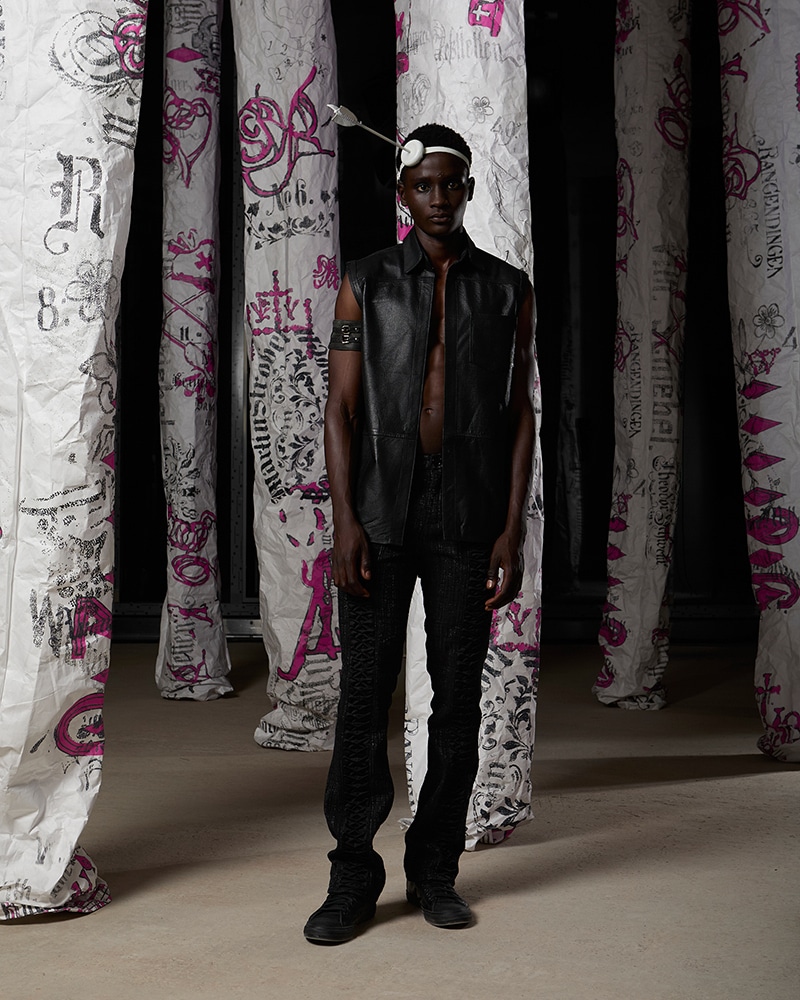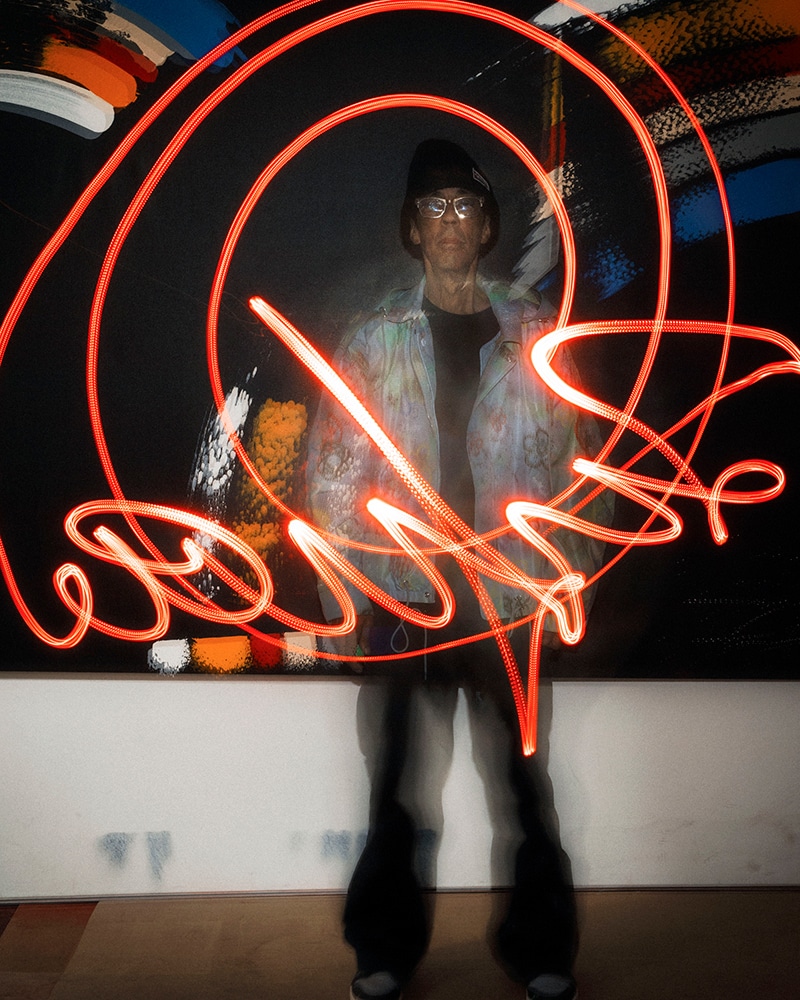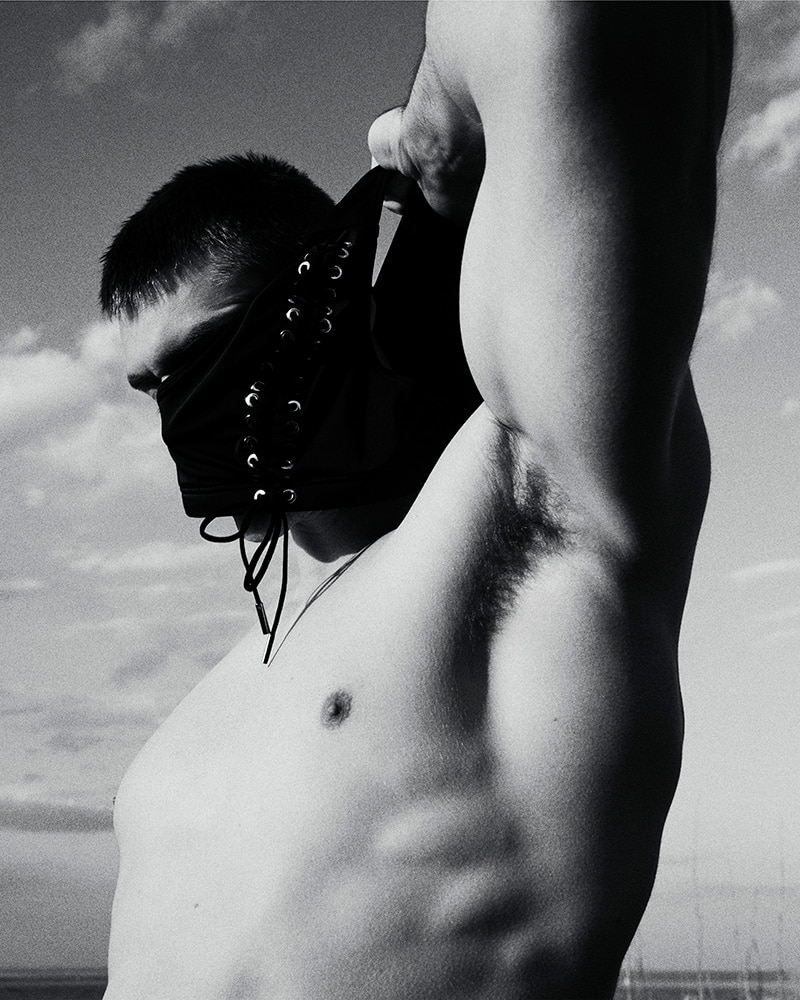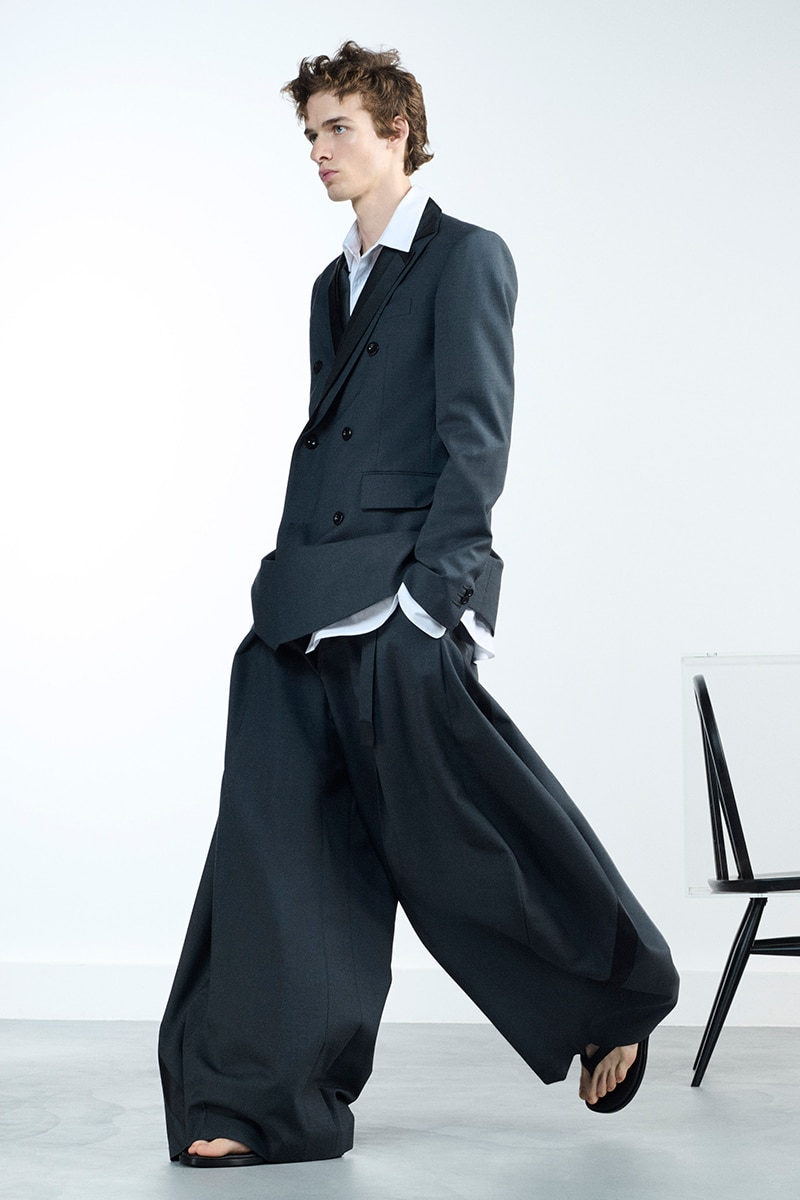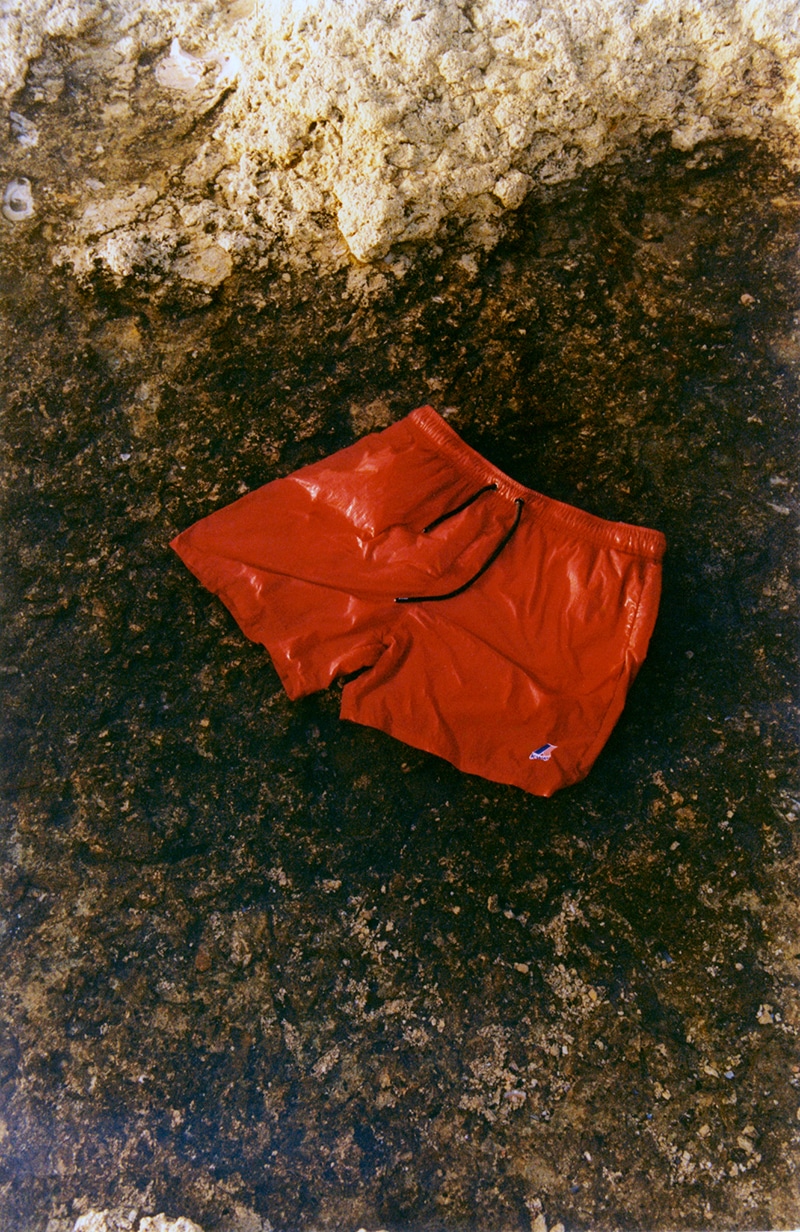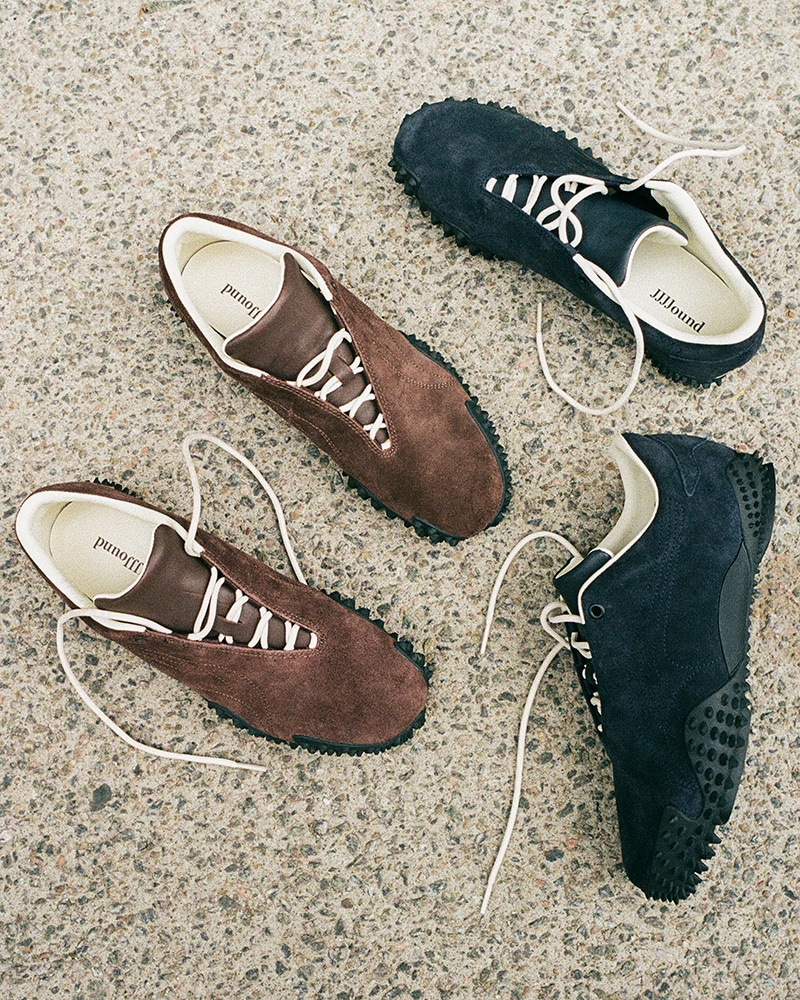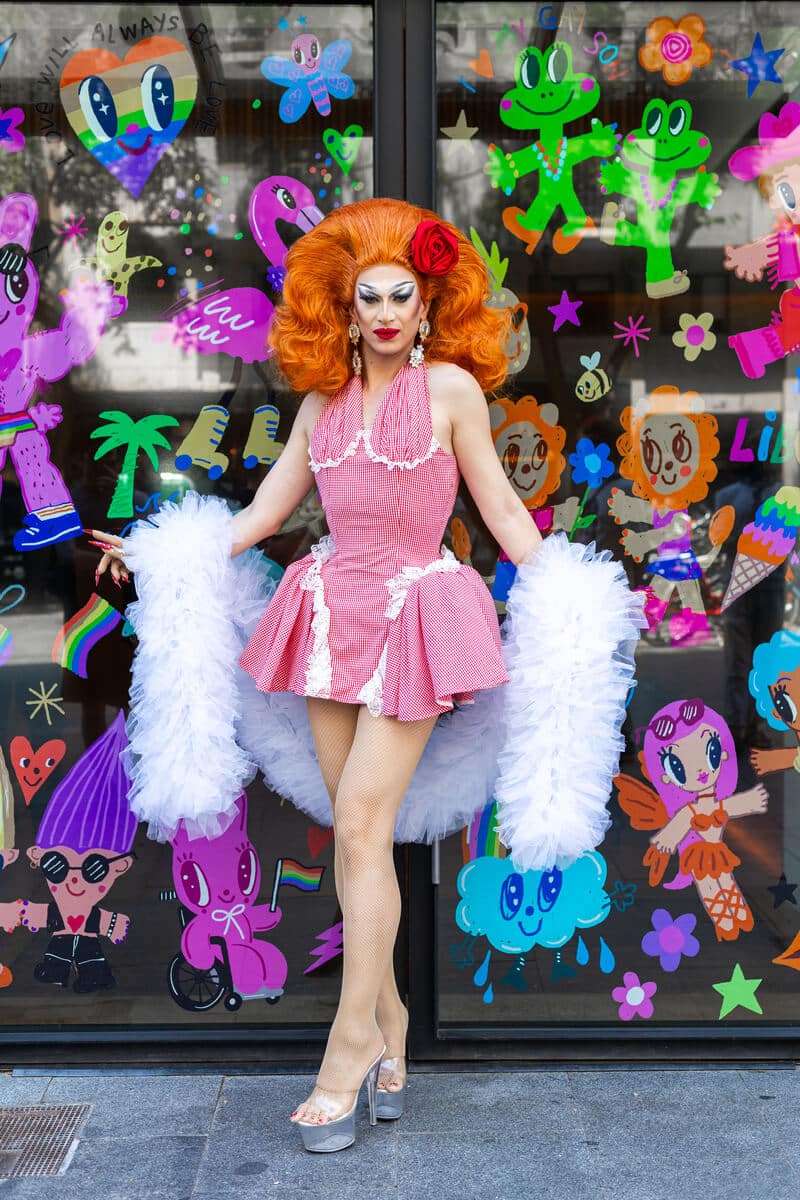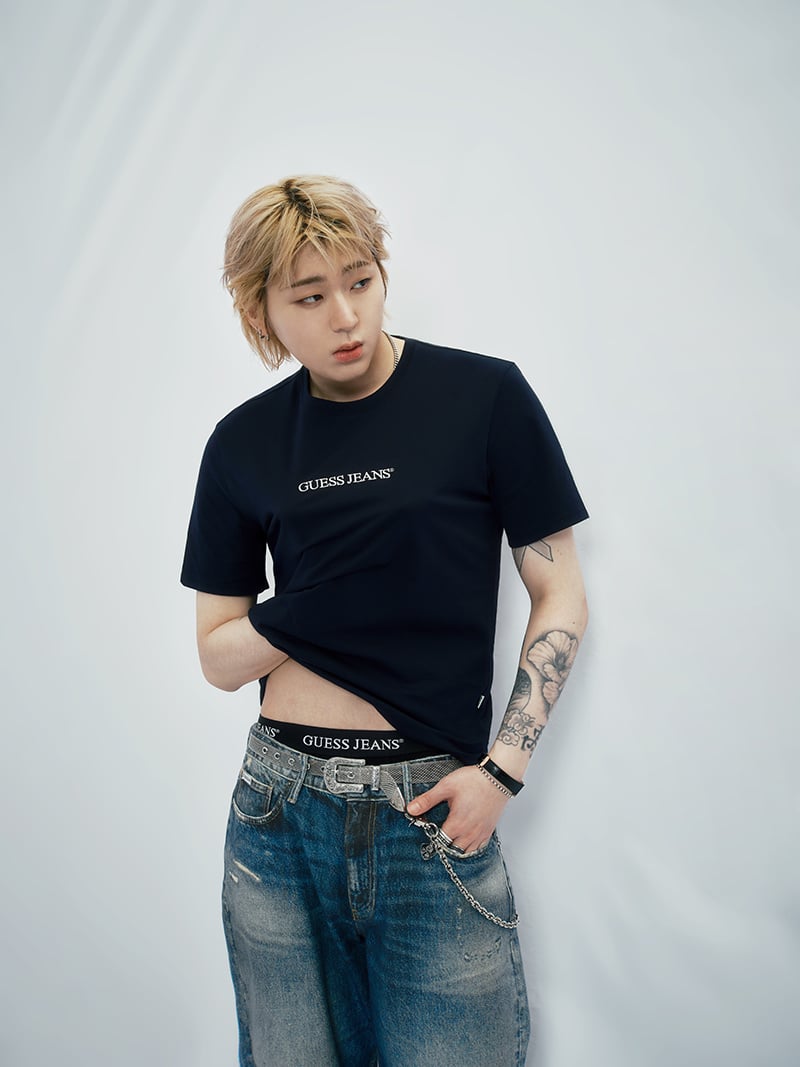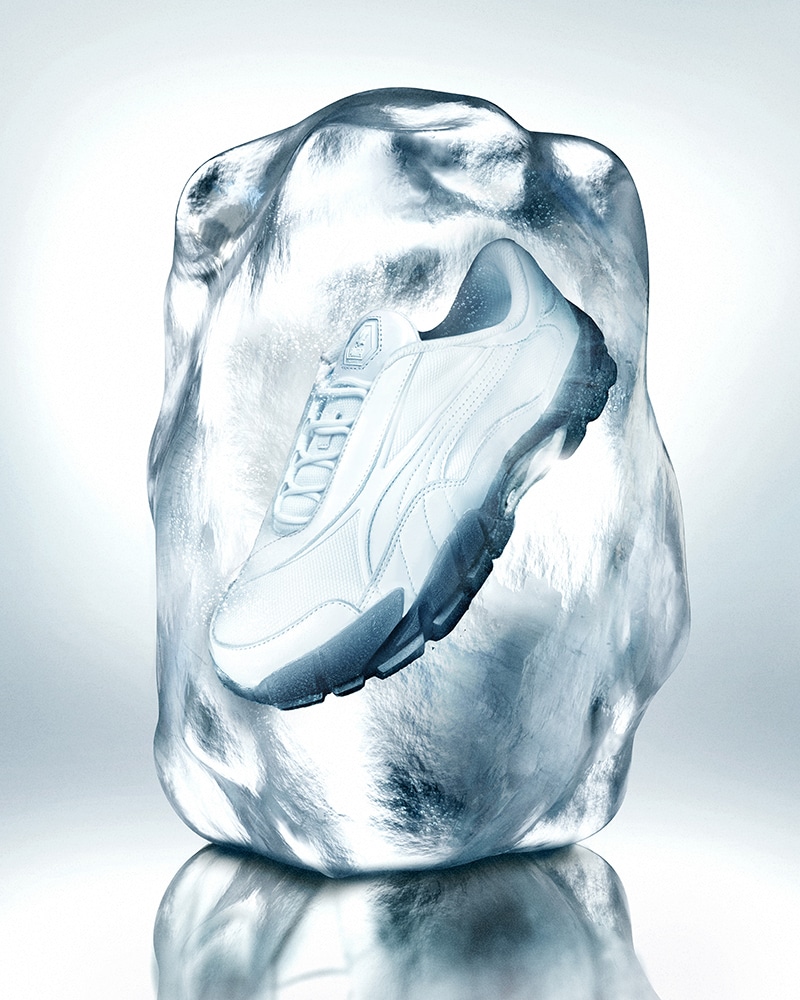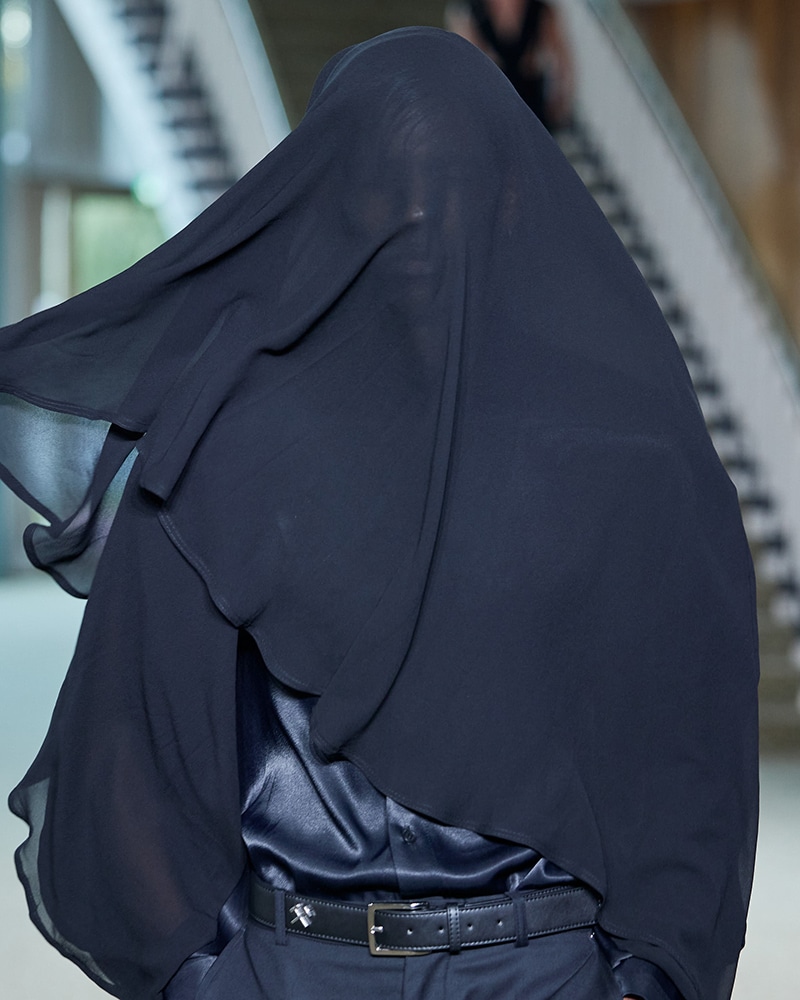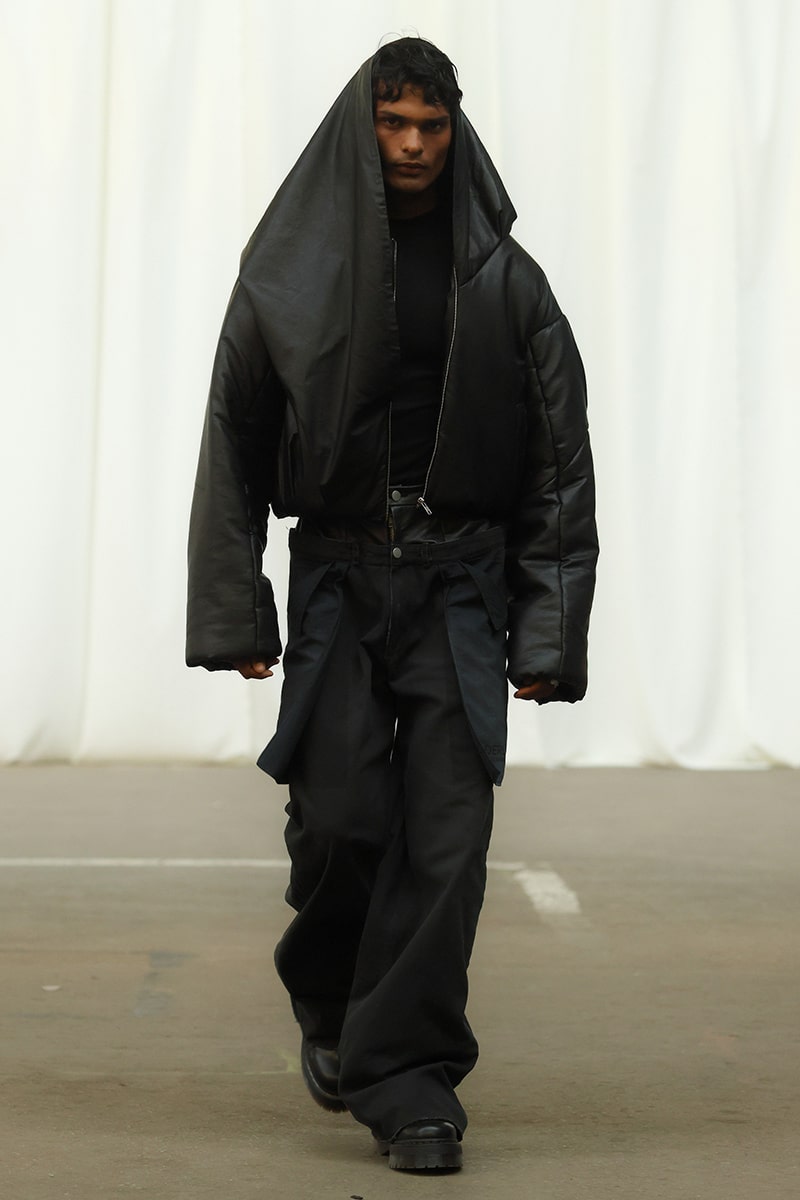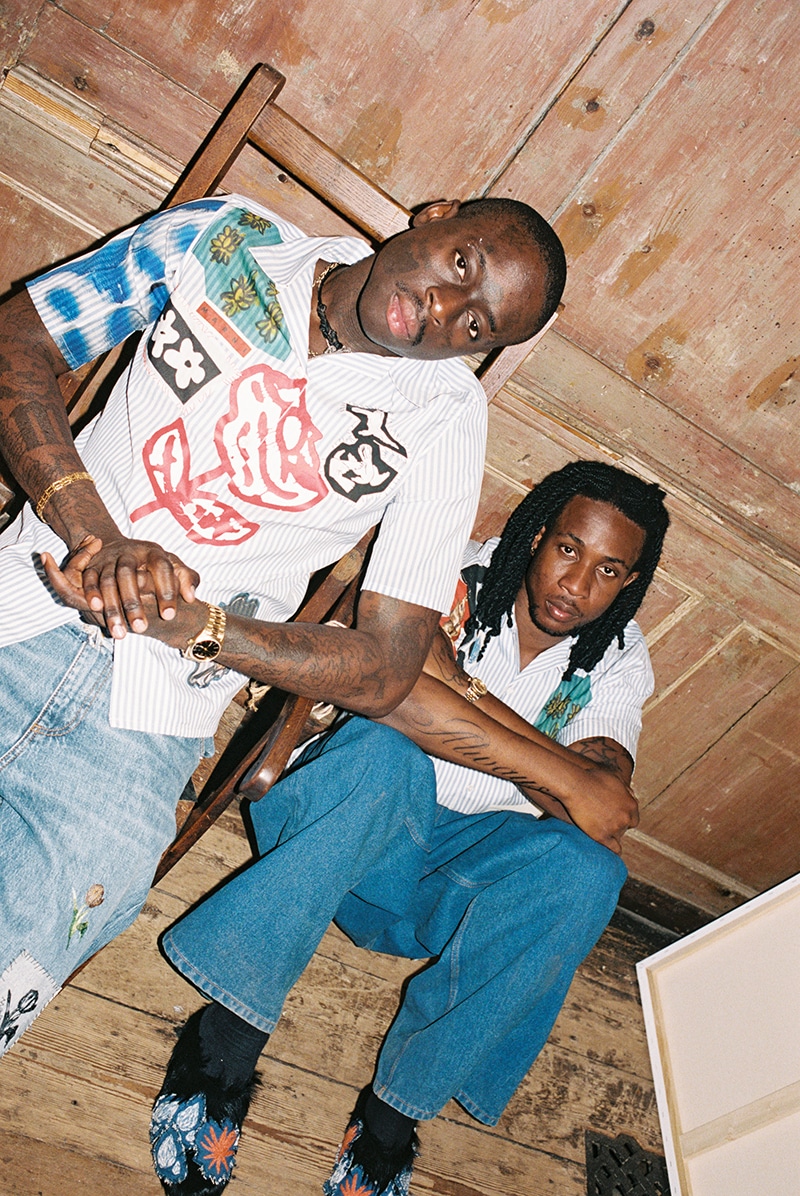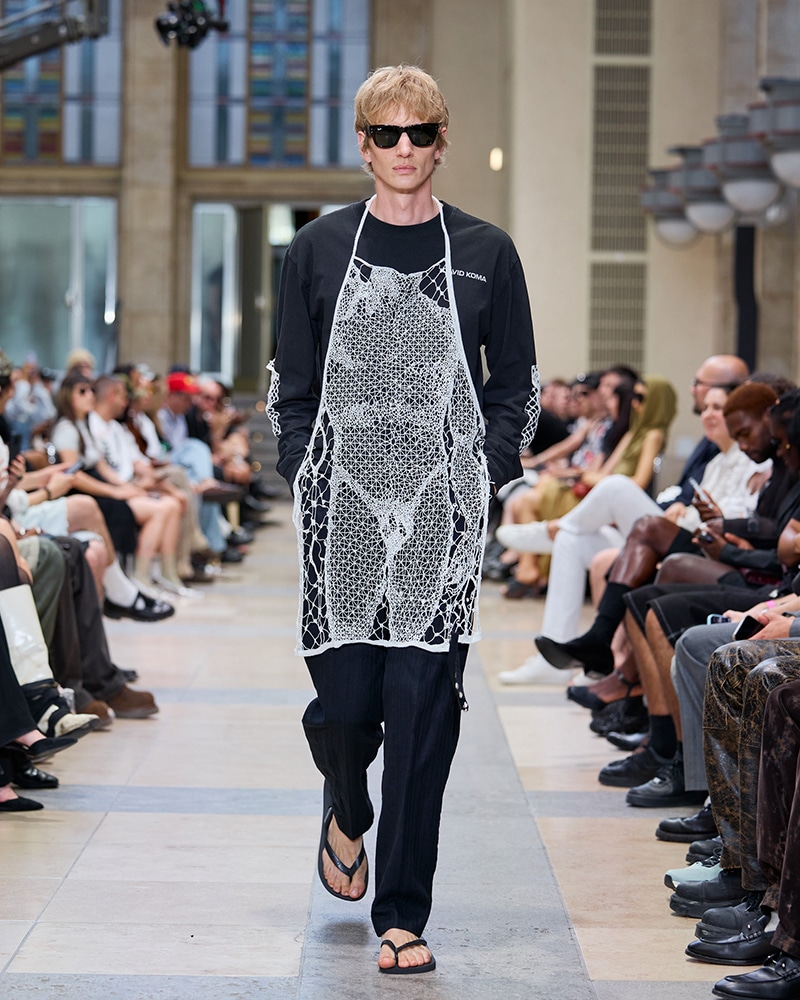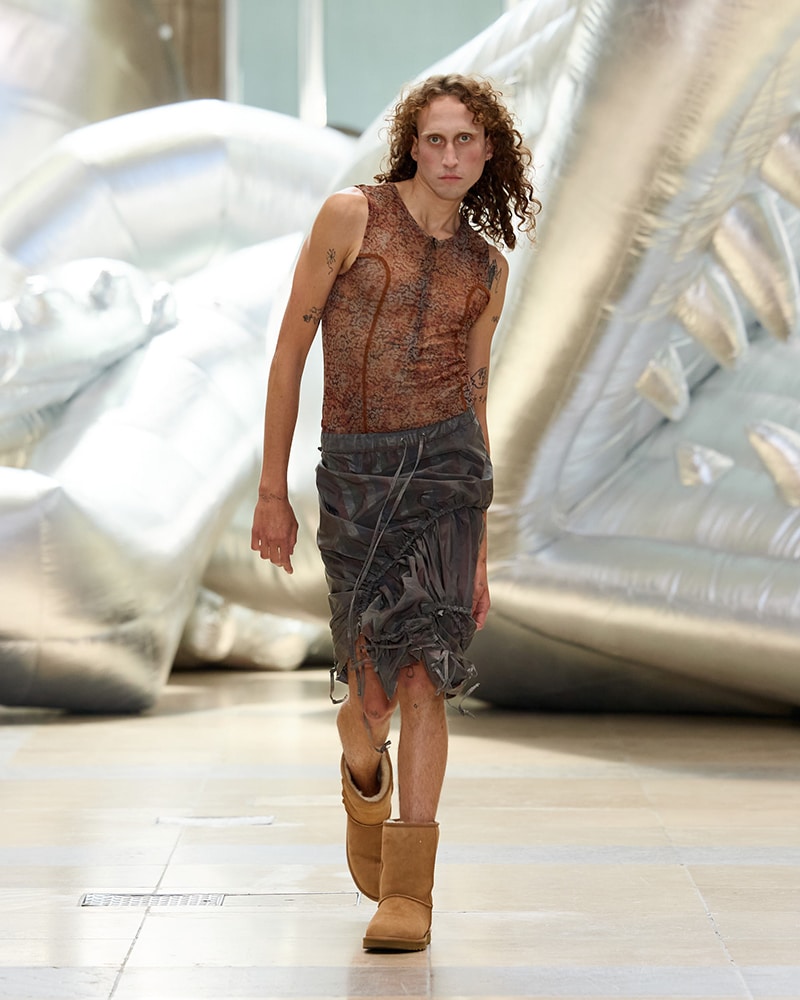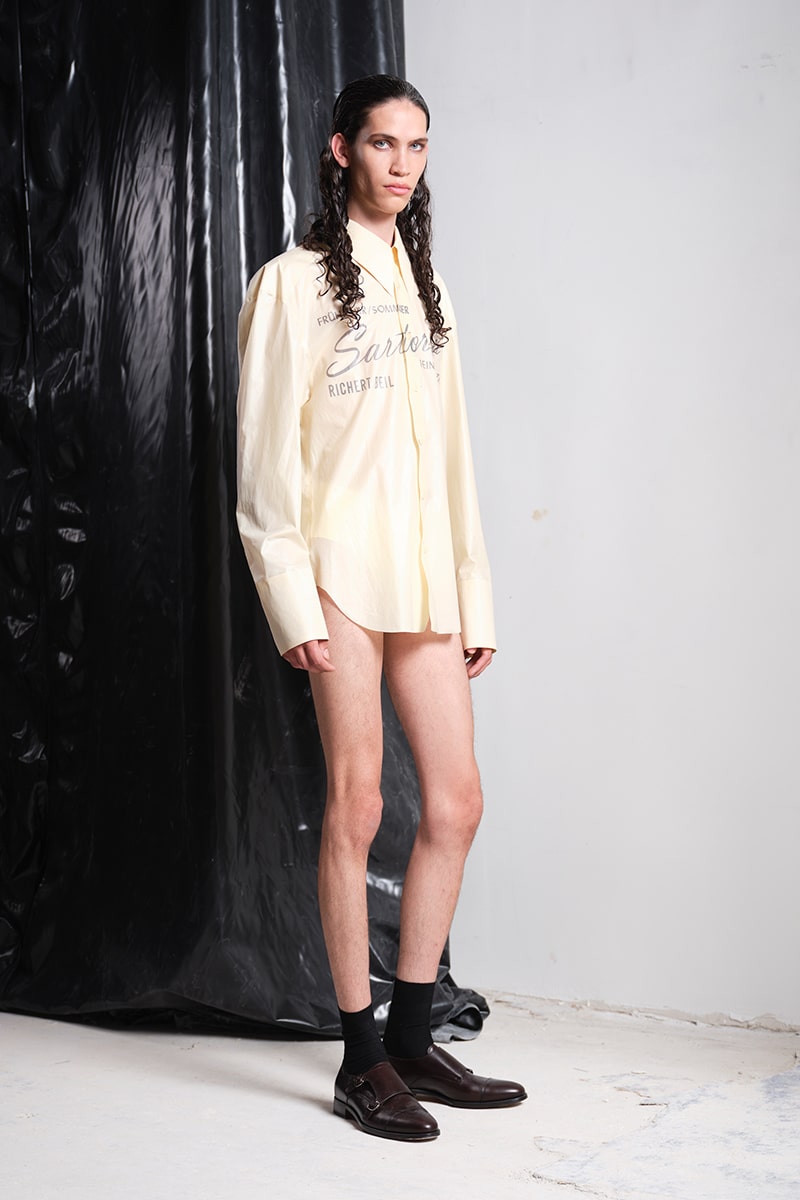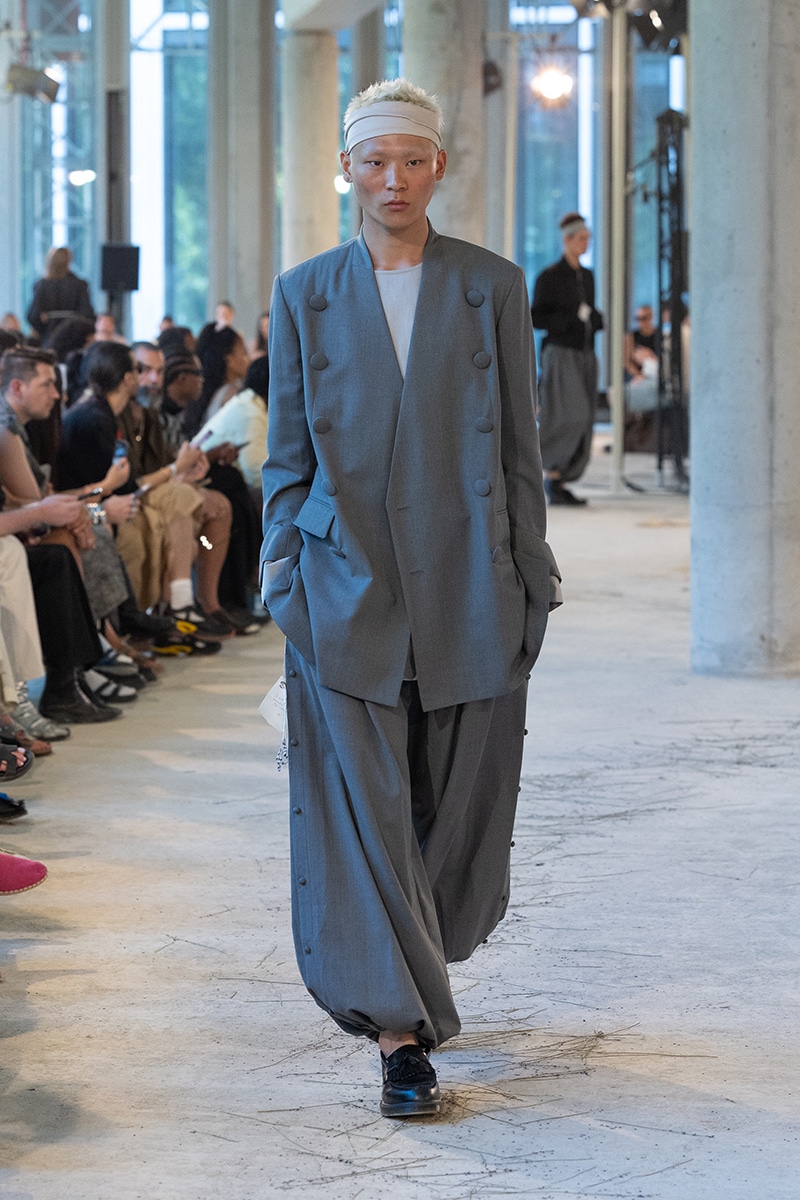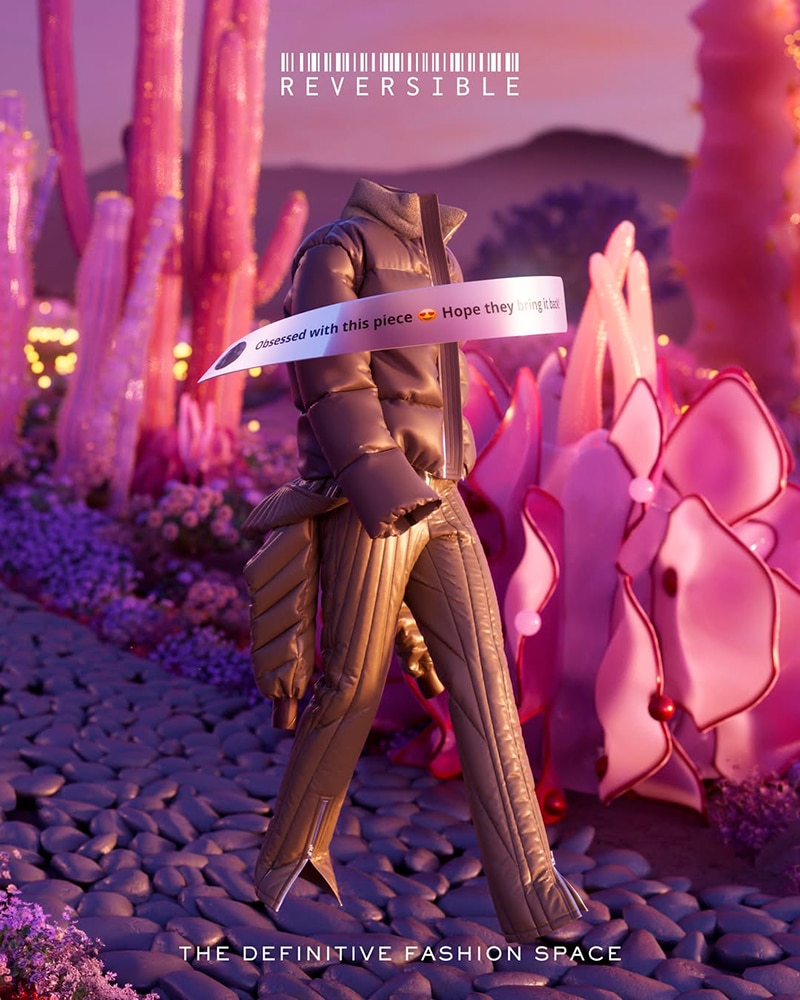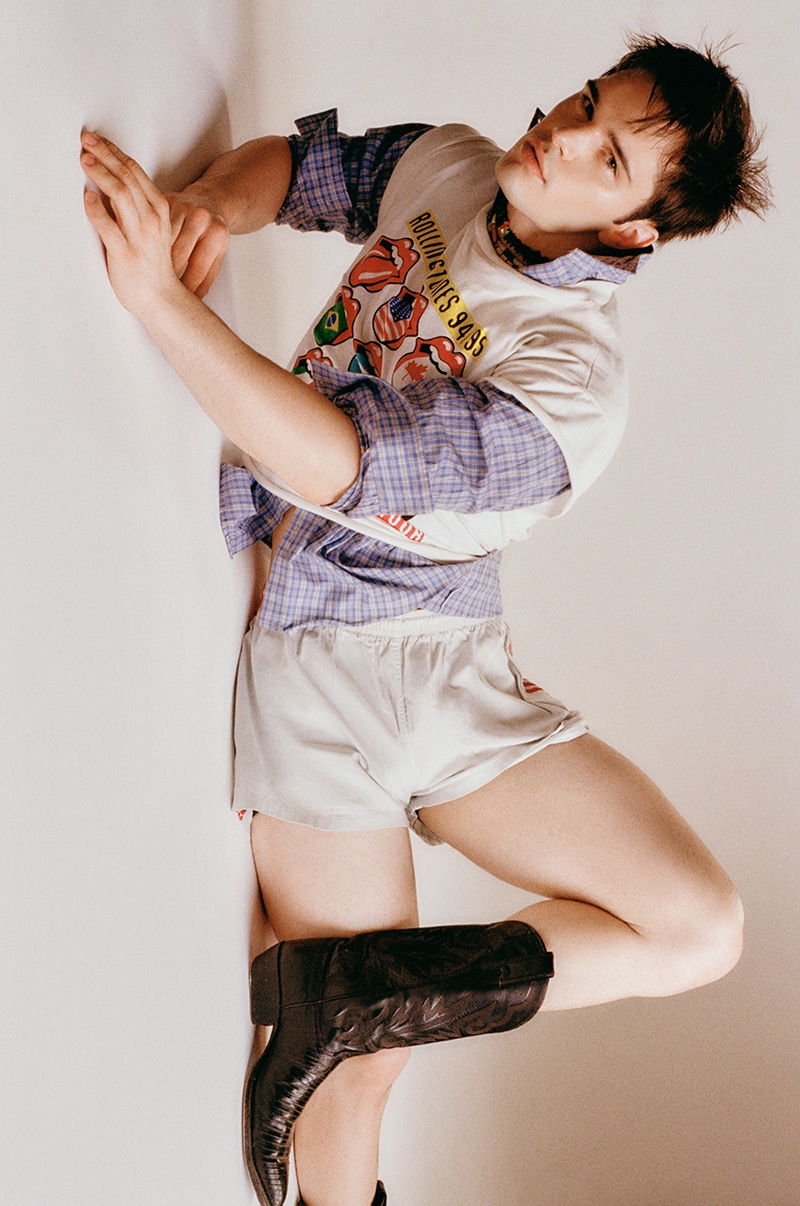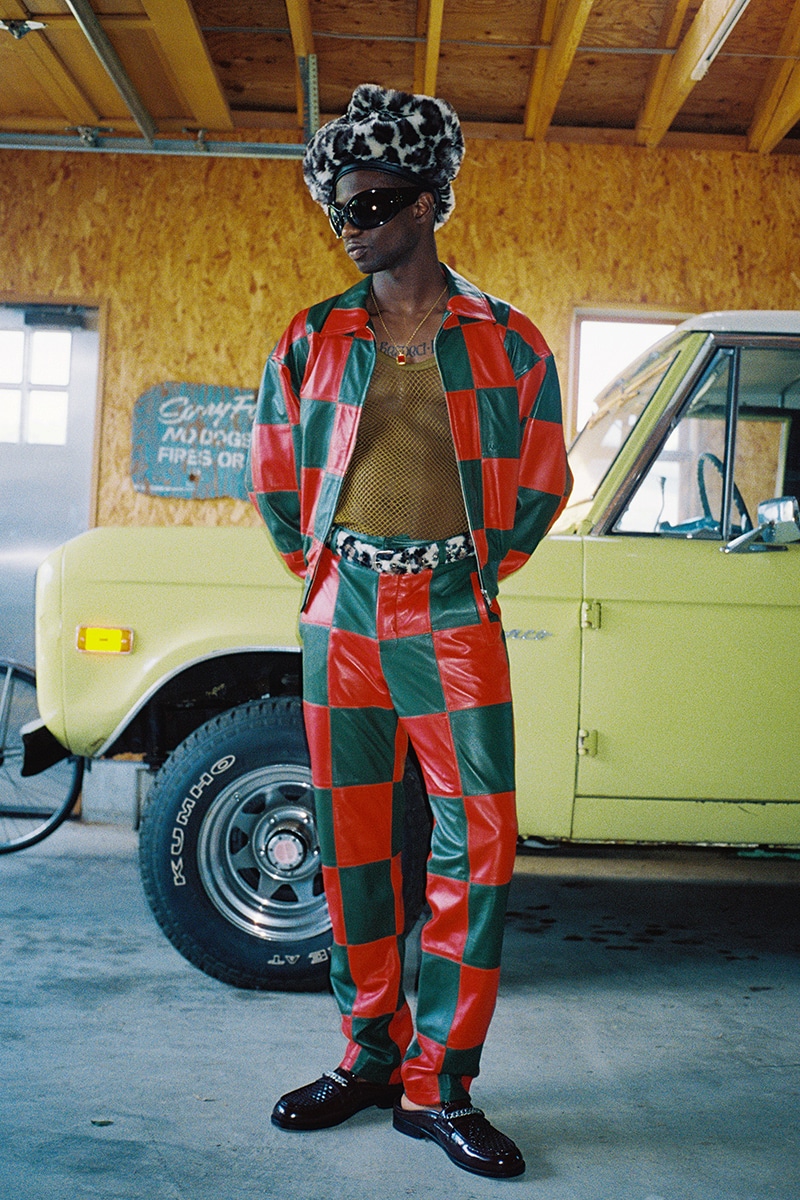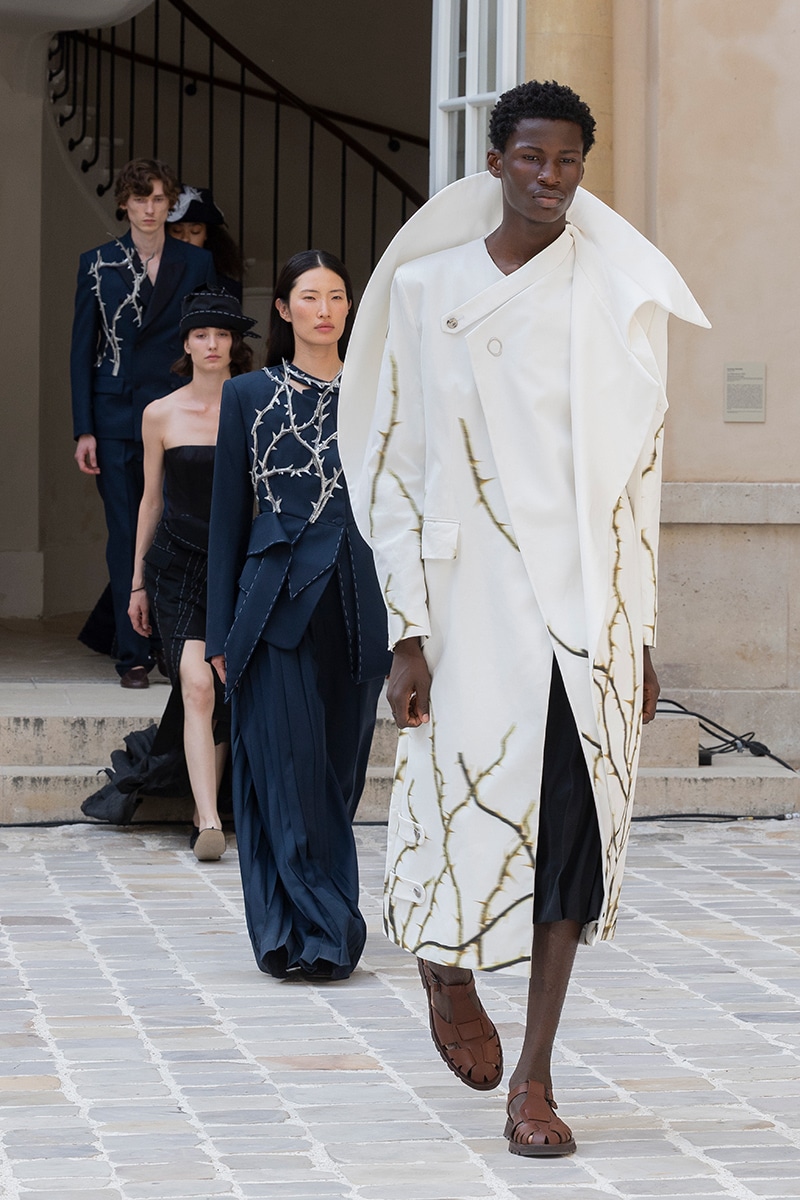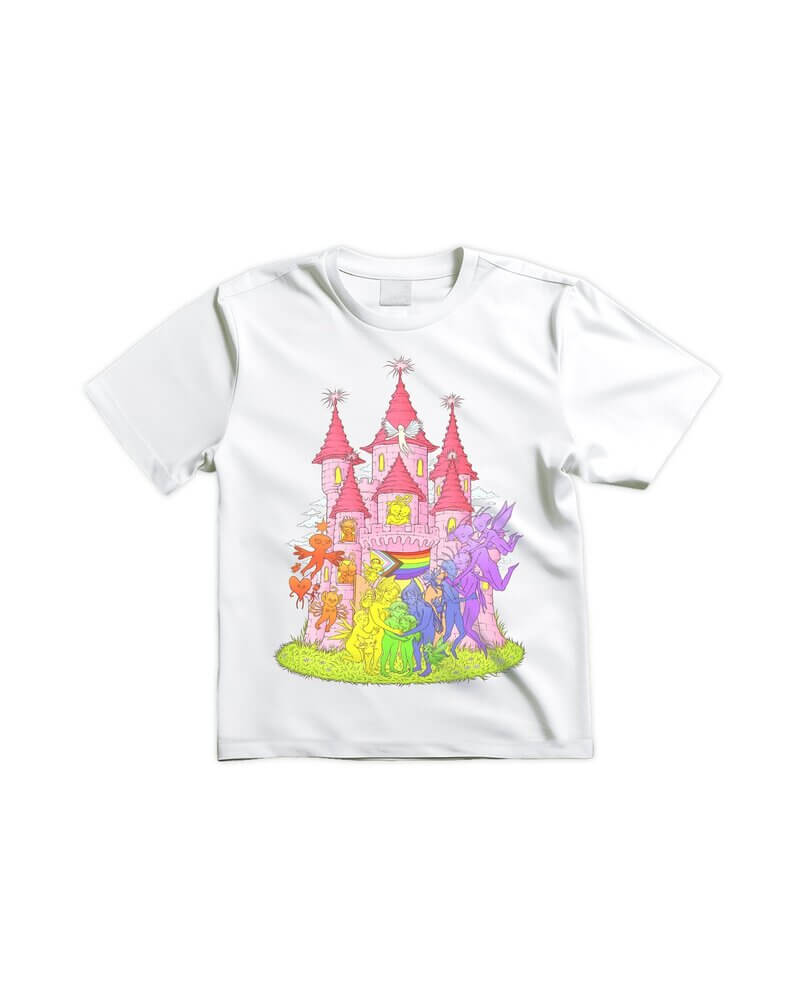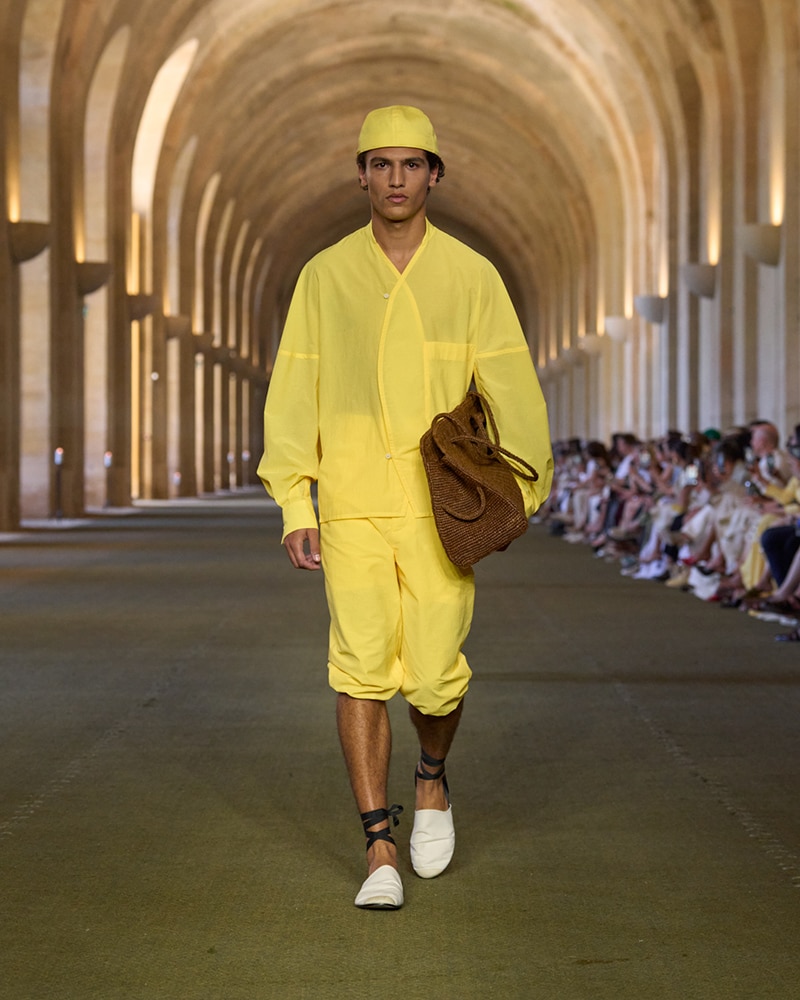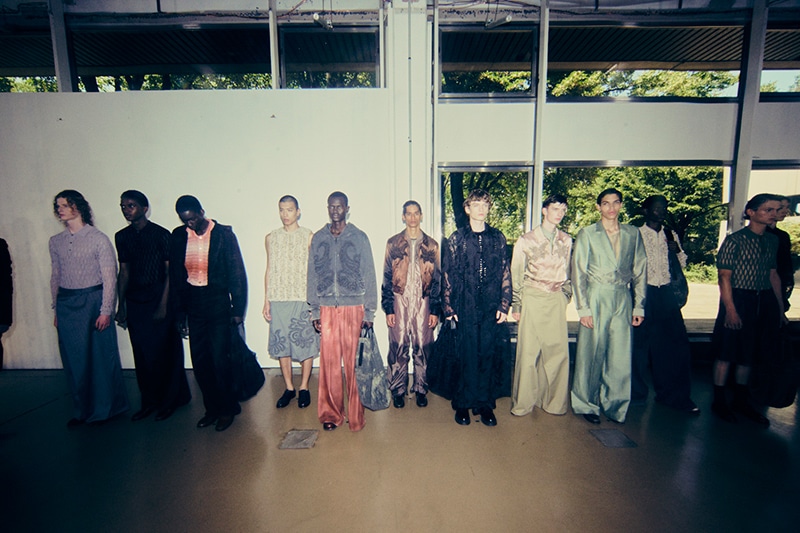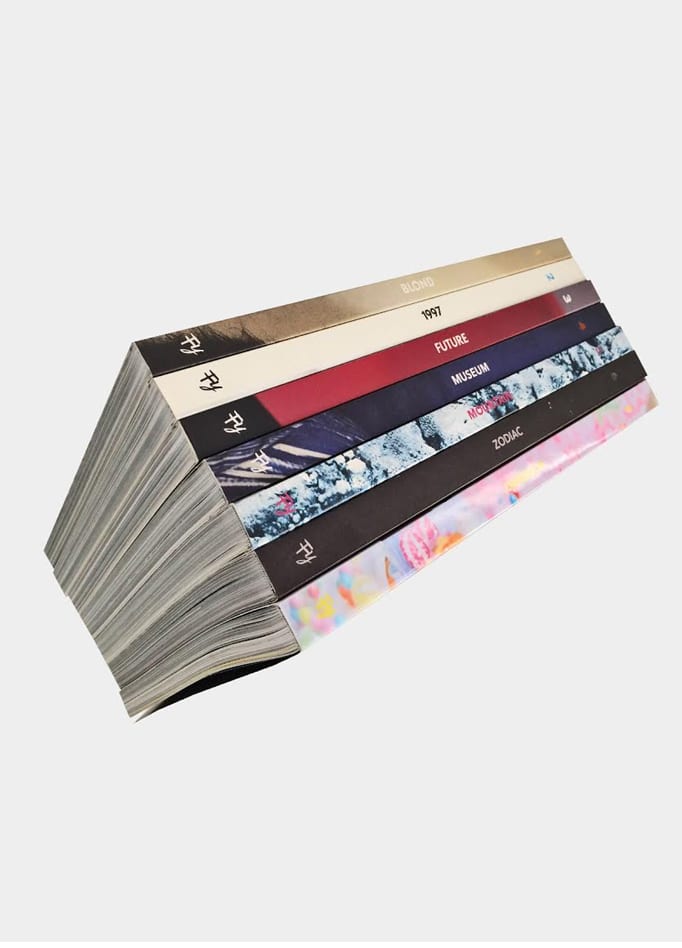With live music in the background, composed and performed by legendary American producer DJ Premier and The Badder Band, and transporting us back to New York in the 90s, Le Carreau du Temple shone again as it rarely has, thanks to AMIRI, which held its show there and presented its Fall/Winter 23 collection during Paris Fashion Week.
This composition was created from the memories and ambitions of its CEO and creative director, Mike Amiri. From this piece of music, the process of the FW23 line began, with both Mike and Premier exchanging ideas and influences and discovering archive cuts that tied in with the designer’s formative years.
Through the proposal itself, came the idea of production, as Mike and his team’s methodology replicates the notion of being in the recording studio, like improvising, discovering new rhythms, and new ways of playing with materials. In this rhythm, the fundamentals of traditional tailoring are fused with those of skateboarding and brought to life in the form of loose, fluid, and generously proportioned shapes that glide with languid ease through the city center. The irreverent spirit of the people who wear AMIRI comes to the fore and is further refined by the sophisticated materials (cashmere, silk, sheepskin, brushed wool) of the pieces. Also the aforementioned, along with the help of the monochrome color palette (silvery greys, blues, and ochres, accented with touches of deep red and mint green) elevate the garments to the most luxurious version of themselves.
Representing the subverted classicism of the house are the suits, which as you know are some of the most elegant and richest pieces. That’s why they have been selected to take on a new dimension, now being worn in a casual, everyday way. Blazers are reinvented with the iconic properties of a varsity jacket, and at the same time, casual shapes are matured and artfully detailed. Trousers become wider and more pleated than ever and are sometimes presented in a soft teddy fabric with oversized pockets. The optimism of 1950s America is more than palpable and school uniforms mix with Beat Generation prose and newsboy hats (icons of the counterculture).
Abstracting the familiar, in-house developed, and established techniques distort the perception of the fabric: Swarovski sequins are hand-embroidered and loosened to mimic tassels, and the delicate texture of leather is mimicked with fine uncut silk. The bandanas’ signature prints are a patchwork of leather and suede, while hand-painted motifs in the studio are transferred to the shearling jackets, meticulously crafted from scraps of fabric as expressive 3D brushstrokes. The extravagance of innovative craftsmanship embraces a sense of performance, inspired by Mike’s early days designing contemporary stagewear for world-renowned musicians.
In a meeting of craftsmanship and fluidity, Premier’s layered scores are reflected in textured garments. An image of P. on his turntable is drawn as a dot, while a patchwork varsity jacket is adorned with archive-inspired badges. The slogan “Some artists make music, others make history” is written in appliqués on some garments, paying the ultimate homage. Like Premier’s stripes, Mike Amiri’s ornate, handcrafted details are his signature.
As a nod to the producer’s favorite instrument, the “Drum Machine” bag debuts, which is accompanied by a new “MA-1” high-top trainer model, and new faux leather versions of the “Malibu” boot.
Check out the collection below:























































